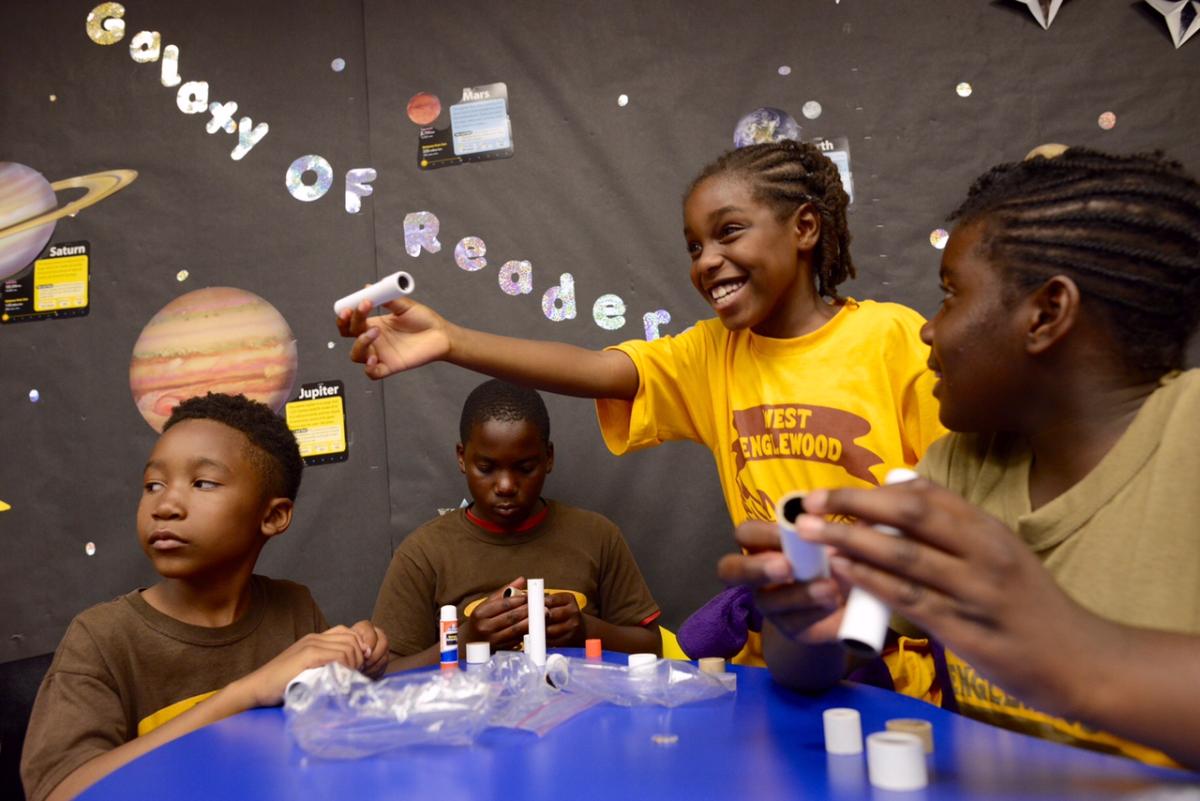Blog Posts | June 21, 2016
Share ThisBy Emily Samose
Urban Libraries Council
Consider this: Do public libraries positively improve education outcomes for children and youth through their summer reading and summer learning programs? How will they know?
These are the questions that the Urban Libraries Council had the opportunity to explore with diverse thought leaders from both inside and outside of the library field via the National Forum on Effective Summer Learning in Libraries with a $95,203.00 Laura Bush 21st Century Librarian grant from the Institute of Museum and Library Services.
Reviewing Published Research
ULC and its strategic partner, the Metropolitan Group, first conducted a scan of existing research on measuring summer learning initiatives and compiled the findings in a literature review titled Measuring Summer Learning in Libraries. The review found a limited number of published reports on library summer learning that used data from standardized test scores to measure how participation in library summer reading correlates to gains in reading achievement. The literature review also discusses what has been measured in the out-of-school-time (OST) and formal summer learning fields, revealing that these programs are also working to demonstrate their impact on 21st century skills such as cooperation, critical thinking, self-directed learning and more. The review of research confirms that more work is needed to generate a shared understanding of how to set and measure library summer learning outcomes.

(Pictured: Summer Programs like this one were the focus of the Urban Libraries Council literature review.)
Convening Expert Thought Leaders
Findings from the literature review informed discussions during the National Forum meeting, where ULC convened 22 expert stakeholders from forward-thinking city, county, and state libraries; school districts; national OST and formal summer learning organizations; universities; early literacy programs; and philanthropic foundations.
The conversation:
-
Examined current programming and assessment models in the library and OST/summer learning fields,
-
Identified learning outcomes that libraries want to achieve with their summer programming, and
-
Explored how public libraries can build their capacity to frame and assess the effectiveness of their summer learning programs.
Discussions generated suggested action steps for libraries to initiate program assessment and recommendations for ongoing research to support the evolving process of defining and measuring learning outcomes.
Sharing Best Practices and Innovative Strategies in a National Publication
The key ideas from the National Forum convening have been encapsulated in a new publication titled, Public Libraries and Effective Summer Learning: Opportunities for Assessment with a corresponding Executive Summary. This call-to-action paper frames the issue of summer learning loss and describes the ways in which libraries are designing their programming to provide diverse learning opportunities that keep kids learning during this critical time. Public Libraries and Effective Summer Learning explores common summer learning goals and examines emerging assessment practices, including applicable lessons from the OST field. The paper also discusses examples of successful library-school partnerships that align learning outcomes and establish data-sharing agreements to better serve their communities.
Public Libraries and Effective Summer Learning provides a call-to-action with tangible steps that library leaders can take now to initiate assessment of their summer learning programs. Finally, the paper highlights recommendations for future collaborations between library leaders, researchers, summer learning leaders, and educators to produce practical resources that can improve program effectiveness and generate evidence of library summer learning’s impact on learning outcomes.
Emily Samose is director of education and learning initiatives at the Urban Libraries Council.
